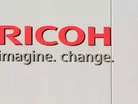Ricoh empowers book printers to efficiently meet demands

Printing giant Ricoh has announced its newest TotalFlow solution, which improves visibility and streamlining of short run and on-demand book production.
This service addresses the challenges faced by book printers who seek tools to track and complete the kinds of jobs the modern book market desires. As these printers continue to integrate solutions that will help grow businesses, increasing efficiency is key to meeting demand. The need for tools to help better track jobs from receipt to delivery, and batch similar jobs to achieve fast turnaround times and efficient resource is a pressing priority. The new solution will be available in Europe in Summer 2016.
As requests for short run jobs on demand work increase, managing operations and deadlines has never been harder for book printers. Keeping track of so many jobs can be incredibly time-consuming, and manually planning out the most efficient ways to lever presses, paper and other resources on time can feel impossible. Ricoh’s digital book printing solution was developed to help printers resolve these issues, simplifying and automating many of the steps in short run digital production. A single web-based interface allows users to develop pre-defined rules for sorting jobs, helping to automate many of the manual steps and batch similar jobs together for simpler printing and finishing. This helps to increase job production, resulting in improved revenues.
Benoit Chatelard, VP of Production Printing at Ricoh Europe, said: “The push toward short run and on demand book printing has made publishing hugely more accessible and democratic, but it has also added considerable burden to running a book printing establishment. With Ricoh’s digital book printing solution, we look to alleviate those pains, making it easier for book printers to keep track of their increasingly complex operations, while driving increased efficiencies and decreased turnaround times. This solution provides much-needed visibility and management improvements over the numerous jobs a book printer has on its plate at any given time, while also automating time-consuming tasks like imposition and manual transitions between steps in the life of a job.”
Follow @ManufacturingGL and @NellWalkerMG
- Ricoh: The advantages of 3D printing across the healthcare sectorTechnology
- The March edition of Manufacturing Global is liveSmart Manufacturing
- Epson teams up with Nuance to increase its share of the multi-function print marketTechnology
- Piezo crystals and PrecisionCore: A look into Epson’s innovation pipelineTechnology

